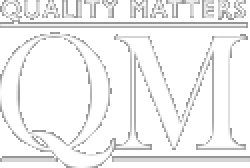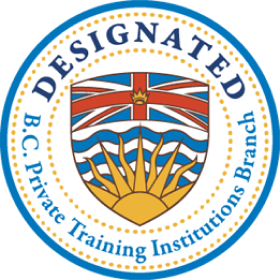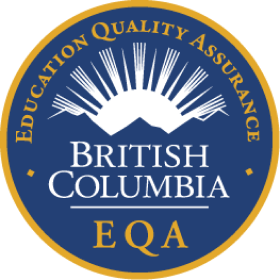GET MORE INFO NOW!!!
Start your journey towards a new career today by requesting program details.
 Financial Assistance
Financial Assistance
 Career Options
Career Options Start Dates
Start Dates Job Opportunities
Job Opportunities

Posted by AOLCC | 24th October 2023
.jpg)
Considering an accounting administrator career? Remember that tech-savvy candidates are most favorable to today’s employers. In our accounting administrator training program, students are introduced to leading accounting software, including Sage 300 and Sage 50, two of the most widely used programs in the industry.
When comparing Sage 300 vs Sage 50, it’s important to understand the purpose and ideal use cases for each platform. While both provide essential tools for managing business finances, they differ significantly in functionality, scale, and integration capabilities. Keep reading to explore the difference between Sage 50 and Sage 300, their key features, and how to decide which Sage software is best for your business.
Sage 300 is an ERP (enterprise resource planning) program designed to handle more complex financial processes for small and medium-sized businesses. Known for its wide-ranging Sage 300 features, the platform supports sales management, business purchasing, inventory control, and financial forecasting. It also includes automated transaction processing and real-time metrics for financial planning and cash flow visibility.
Is Sage 300 outdated? Not at all. Sage 300 continues to be updated with modern ERP features and remains a powerful solution for businesses requiring robust financial and operational management.
Businesses using Sage 300 benefit from centralized data, streamlined workflows, and strategic decision-making tools, making it ideal for companies needing robust multi-user access and integrated operations.
Is Sage 50 being phased out? No. Sage 50 is still widely supported and used by small businesses. While newer cloud-based options exist, Sage 50 continues to be updated and maintained.
Sage 50, a powerful desktop accounting solution, focuses on day-to-day financial management tasks such as invoicing, expense tracking, financial reporting, and payroll (available with upgrades). Though its Sage 50 features overlap with those of Sage 300, the platform is better suited for freelancers, small businesses, or companies with up to 50 users.
While Sage 50 offers strong performance for traditional bookkeeping functions, it lacks the extended business management capabilities found in Sage 300. This makes understanding the Sage 50 vs Sage 300 comparison critical when planning your software training or choosing a solution for a client or employer.
The core difference between Sage 50 and Sage 300 lies in the scope and scalability of the platforms. Sage 300 is built for enterprise-level needs, with modules for inventory, payroll, accounts payable/receivable, and multi-location management. In contrast, Sage 50 focuses more narrowly on accounting and is more user-friendly for smaller businesses.
When comparing Sage 300 vs Sage 50, consider user capacity, integration capabilities, and long-term business needs. Sage 50 remains popular among startups and sole proprietors, while Sage 300 suits growing companies requiring advanced control and customization.

Sage 50 vs Sage 300 – key differences lie in the scope of each program.
So, which Sage software is best for my business? The answer depends on the size, complexity, and structure of your operations. If your business needs multi-departmental control, inventory oversight, or foreign currency support, Sage 300 is likely the better fit.
For straightforward bookkeeping and payroll, Sage 50 provides an efficient and affordable solution. Through our Sage accounting training, students explore both platforms, giving them the flexibility to support a range of business clients after graduation.

To learn more about the functionality of various accounting software solutions and the basics of business accounting management, consider enrolling in our 34-week accounting administrator training program. You’ll be fully prepared to thrive in any office setting upon graduation.
Are you ready to enroll in our Accounting Administrator Program with Sage 300 training?
Contact AOLCC BC for more information!
No. Sage 50 is still widely supported and used by small businesses. While newer cloud-based options exist, Sage 50 continues to be updated and maintained.
Not at all. Sage 300 continues to be updated with modern ERP features and remains a powerful solution for businesses requiring robust financial and operational management.
The differences between Sage 50 and Sage 300 lie in the scope of each program. Sage 300 is most popular among small businesses and medium-sized enterprises. Sage 50, on the other hand, originally got its name because it was meant to provide accounting management software tools for up to fifty users.
Start your journey towards a new career today by requesting program details.
This fun, online quiz takes 3 minutes to complete and you'll get a personalized report. Identify your strengths and social style plus the training and positions you're best suited for.Get Your Career Training Readiness Score Now
With campuses in four strategic locations, AOLCC is your go-to career college in BC
Each AOLCC campus serves as a local hub for career skills training and community connection. Whether you are searching for colleges in Kamloops, BC, colleges in Nanaimo, BC, or a career college in Kelowna, our campuses are easily accessible and connected to local employers.
699 Victoria Street
A welcoming, centrally located campus in the heart of the city
347 Leon Avenue
Serving the Okanagan with flexible programs for career starters and changers
1551 Estevan Road
Conveniently located for students on Vancouver Island seeking certificate programs
754 Goldstream Avenue
Offering diploma and certificate programs to students in Greater Victoria and beyond
Our campuses are accessible via public transit, and many offer nearby parking options. If you’re looking for career training in other BC locations, we can connect you with our extended AOLCC network.



B.C. Private Training
Institutions Branch

B.C. Education
Quality Assurance